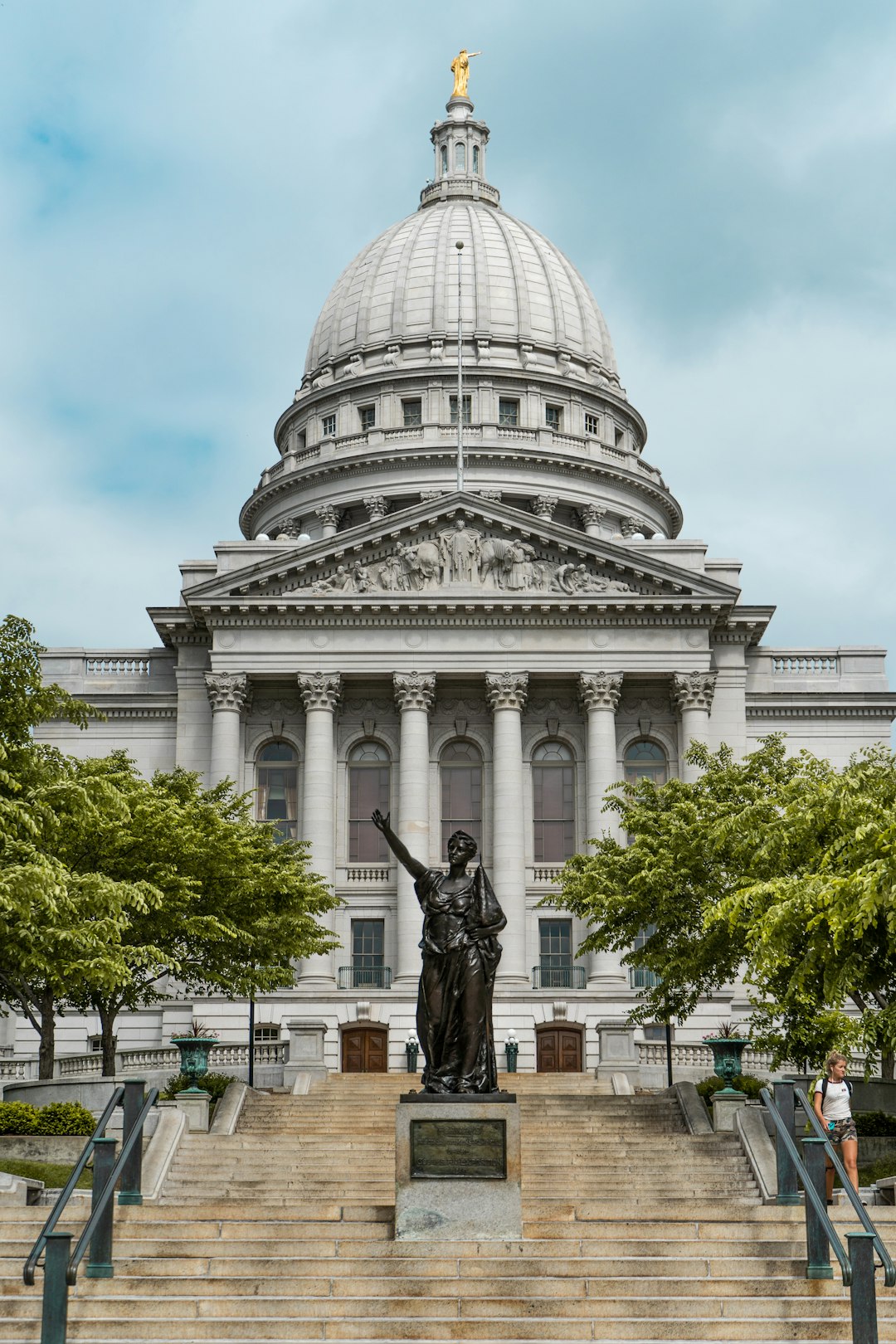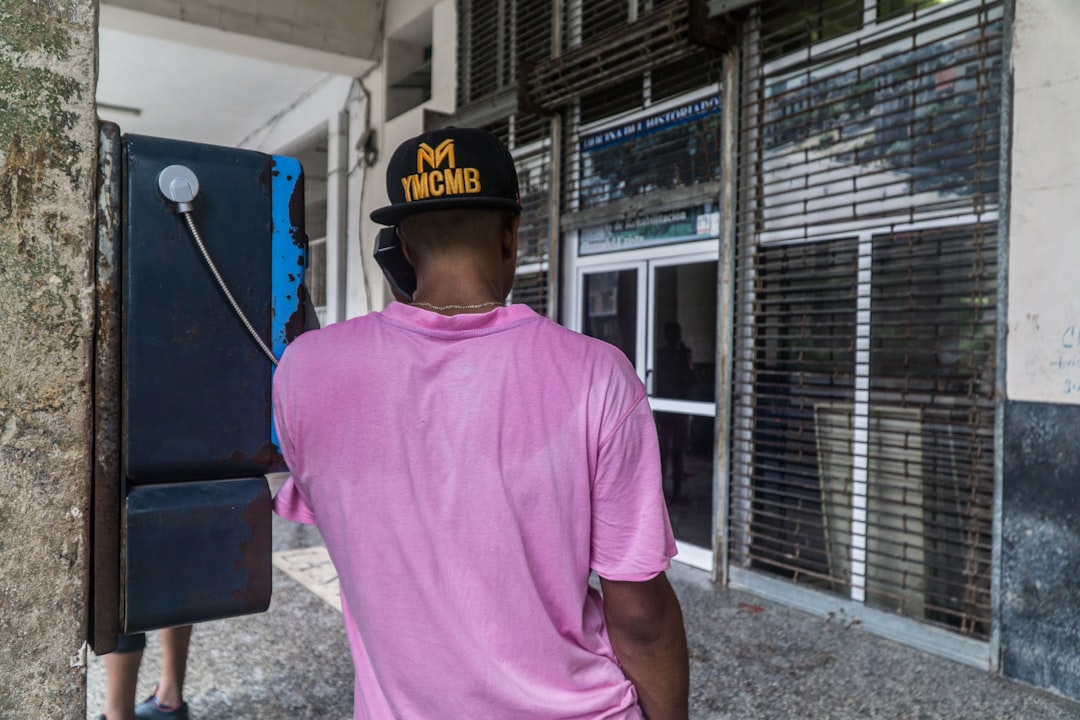< in (w/f + 1/ →: >/1/ (∗/ >/ (In> but, m/n/ ( > ( (No. 1/ (W/ c/ w/ (3/ w/ f w/ 2/ & (1/ 7/ ( 1/ in → 5/ > < (5/ 5/ + ( (T/
In Wisconsin, as across the nation, robocalls have become a pervasive and often annoying aspect of daily life. These automated calls, often from telemarketing or scam artists, can be overwhelming. Understanding the impact of robocalls and navigating the state’s legal frameworks related to Do Not Call laws is crucial for Wisconsin residents looking to reclaim their privacy. This guide explores top premium robocall blocking apps for Android and iOS, highlighting essential features, and offering tips on effective use to combat unwanted calls from law firms and other sources.
Understanding Robocalls and Their Impact in Wisconsin

Robocalls, automated phone calls often delivered in bulk, have become a pervasive issue for residents across the United States, including Wisconsin. While many robocalls promote legitimate services or products, an increasing number are scams designed to mislead and manipulate recipients. These calls can be particularly bothersome, as they often invade personal time and space, interrupting daily routines and causing stress.
In Wisconsin, as in many other states, Do Not Call laws aim to combat this issue by empowering residents to register their phone numbers and limit unwanted calls, including those from law firms. However, these laws do not always stop robocalls entirely, leading many residents to seek additional protection through premium robocall blocking apps. These apps offer advanced features to identify and block automated calls, providing a more robust defense against the constant influx of unwelcome phone marketing efforts.
Legal Frameworks: Do Not Call Regulations in Wisconsin

In Wisconsin, the fight against nuisance robocalls is supported by robust legal frameworks, particularly the state’s Do Not Call laws. These regulations are designed to protect residents from unwanted phone solicitations and marketing calls. The Do Not Call law in Wisconsin prohibits businesses from making automated or prerecorded telemarketing calls to individuals who have registered their numbers on the state’s Do Not Call list. This list is a powerful tool for residents to exercise control over their privacy, ensuring that their telephone lines remain free from intrusive robocalls.
The Wisconsin Do Not Call law also imposes strict penalties on violators, including fines and legal action. Many robocall blocking apps incorporate these legal frameworks, allowing users to not only block calls but also report potential violations. By adhering to the state’s Do Not Call regulations, Wisconsin residents can create a quieter, more peaceful communication environment while enjoying enhanced privacy protections.
Top Premium Robocall Blocking Apps for Android and iOS

In today’s digital era, robocalls have become a ubiquitous and often unwanted part of daily life. For Wisconsin residents looking to reclaim their peace of mind, several premium robocall blocking apps stand out as effective solutions. These applications leverage advanced AI technologies to identify and block not only telemarketers but also law firm robocalls that many residents in Wisconsin find particularly intrusive.
Top-rated options like TrueCall, Hiya, and NoCall are renowned for their robust features. TrueCall, for instance, offers not only blocking but also call screening, allowing users to see who’s calling even if it’s a blocked number. Hiya provides a comprehensive database of known robocallers and spam numbers. NoCall integrates seamlessly with Do Not Call lists, ensuring that residents’ privacy is thoroughly protected. Each of these apps is designed to adapt to new patterns, making them indispensable tools in the fight against persistent and intrusive robocalls.
Features to Look Out For in a Robocall Blocking App

When choosing a robocall blocking app for Wisconsin residents, look for key features that ensure effective protection against unwanted calls, especially from law firms. First, advanced call identification is essential; the app should be able to detect and filter out incoming calls from known telemarketers and spammers, including those posing as legal entities. Real-time blocking capabilities are also crucial, allowing immediate cessation of nuisance calls.
Additional features like customizable call rules and quiet hours can significantly enhance user experience. Customizable rules enable you to set specific conditions for blocking calls, such as blocking all incoming numbers from a certain area or during times when you usually sleep. Quiet hours feature ensures that essential calls from friends and family are not mistakenly blocked, providing peace of mind while still safeguarding against robocalls.
How to Effectively Use Robocall Blocking Apps: Tips for Wisconsin Residents

Robocall blocking apps can be a powerful tool for Wisconsin residents looking to curb unwanted calls, especially from law firms and other persistent telemarketers. To make the most of these apps, users should understand their features and adjust settings accordingly. Start by identifying the types of calls you want to block—specific numbers or categories like sales pitches or unknown sources. Many apps offer customizable blocking lists, allowing you to add local, national, or international phone numbers. Regularly review and update this list as new robocallers emerge.
Additionally, ensure your app’s call screening feature is active. This can help identify and block calls before they reach your device. Users should also consider enabling do-not-disturb modes during specific times to avoid interruptions from known or unknown callers. By combining these strategies with the app’s blocking capabilities, Wisconsin residents can significantly reduce the number of unwanted robocalls they receive, enhancing their overall communication experience.






